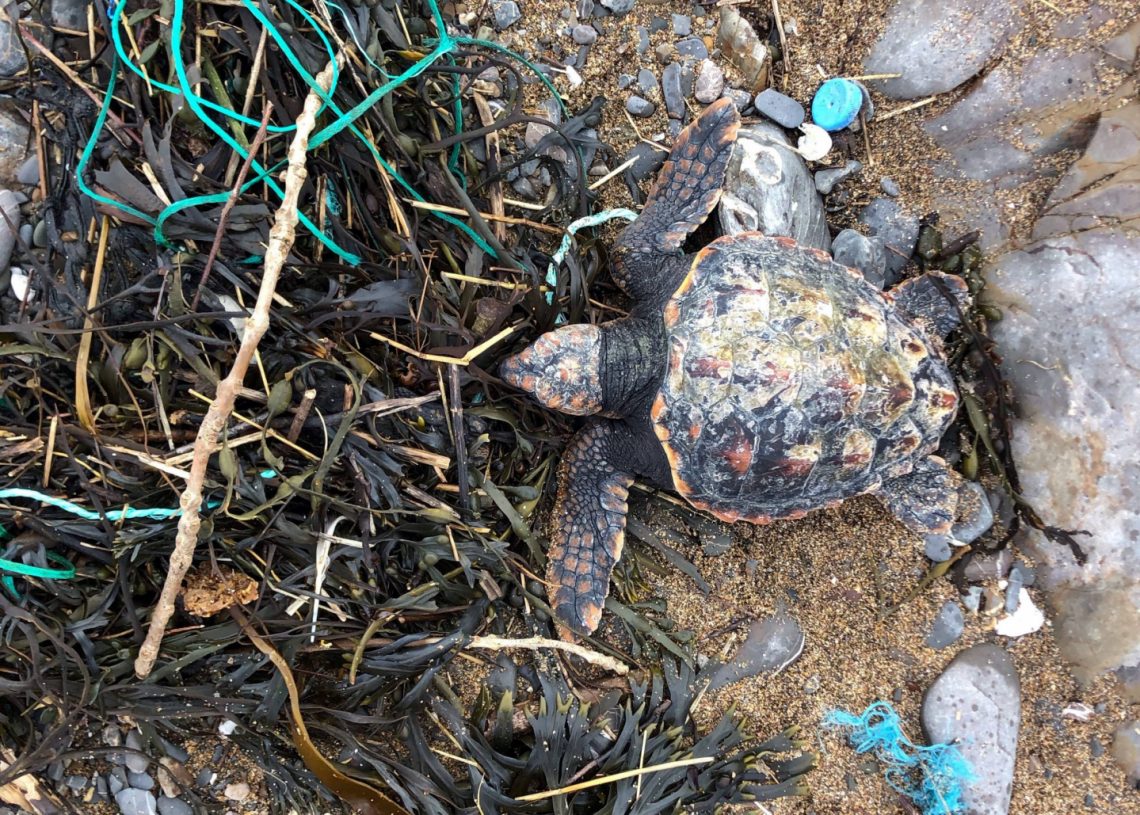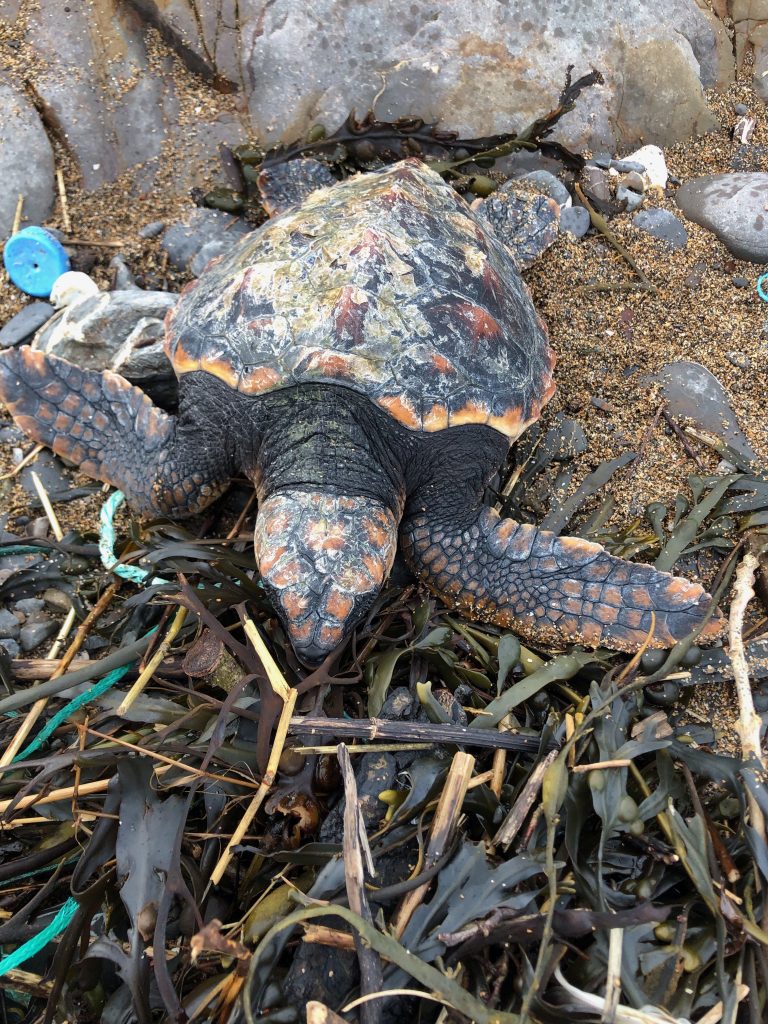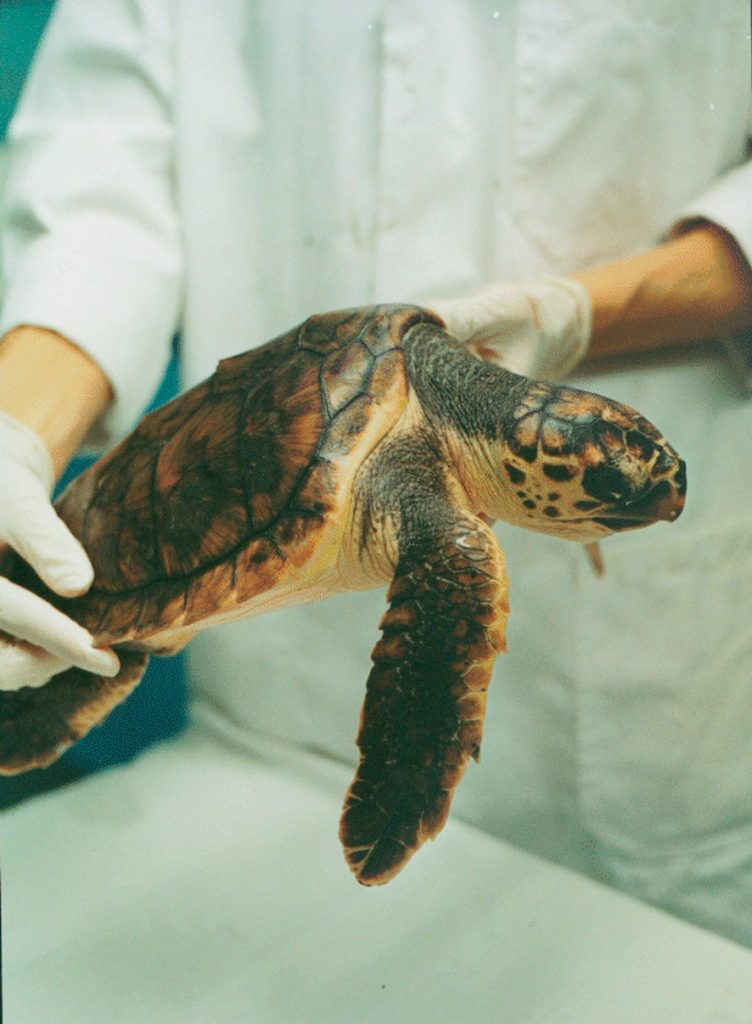
What do I do if I find a stranded turtle this winter?
An unusual number of young turtles have been washing up on UK and Irish beaches due to stormy conditions – some suffering from cold water shock. If you see one stranded, the Marine Conservation Society advises you to not return it to the sea but to report it. Here’s how…
Since November, a number of stranded turtles have been reported to the Marine Conservation Society, and Marine Environmental Monitoring, which maintains the database of UK and Irish turtle sightings.
In total, 13 turtles have been reported: 12 loggerheads and one rare Kemp’s ridley turtle, all relatively small juveniles between 20-50cm in shell length. This is an unusually high number.
Most strandings have been in the south west, with the furthest north being Anglesey. One was also reported on the west coast of Ireland in County Mayo.
“Although we see the most hard-shell turtle strandings and sightings between December and February, this year, we’ve had more than usual,” said Rod Penrose, who leads Marine Environmental Monitoring. “They’re mostly juvenile or injured adults, so it’s thought that they struggled to fight the strong winds and currents of severe storms in their native waters of the US and Caribbean, where they were carried offshore into the Atlantic Gyre before ending up in cold UK waters.”
Turtles get cold water shock
Hard-shelled turtles, like loggerheads and Kemp’s ridleys, go into cold water shock in our chilly winter seas and do not survive for long periods in these conditions. Of the turtles reported this season, four have been rescued and taken to specialist facilities to be rehabilitated and hopefully released in the future. Every effort is made to collect every individual found, so they can either be rehabilitated if alive, or examined, to understand what led to them arriving on UK and Irish shores.
The Marine Conservation Society asks anyone to report jellyfish and turtle sightings as part of its Wildlife Sightings programme. “It’s important that we gather data on turtle sightings and strandings, as well as other marine life such as jellyfish, to build a picture of our seas,” said Amy Pilsbury, Citizen Science Programme Developer at the Marine Conservation Society. “This vital information about our ocean’s inhabitants, and any changes in their frequency and whereabouts, contributes to scientific research which helps us to find solutions to protect our seas.”


What to do if you find a stranded turtle
If you do find a stranded turtle, DO NOT put it back into the sea. It will be in cold shock and will need help. Instead, wrap the turtle in a damp towel and set it on its belly somewhere safe and sheltered, raising its back end slightly to allow any water to drain from its lungs.
Be sure to report the sighting as soon as possible so that the turtle can be taken to a specialist facility where it can hopefully recover or be treated. For a detailed guide, consult the Turtle Code.
Marine Conservation Society volunteer Cat Frampton found a stranded turtle in Bude, Cornwall. “We were walking along Widemouth Bay, filling a bucket with sea plastic, fishing nets and line and plastic bottle lids, when my husband saw a turtle on the high tide line,” she said. “It was still and looked lifeless, and not being up to speed on turtles, we assumed it was dead. I took some photos and we carried on with our walk.
“Once we got home, I was curious about what a turtle could be doing in UK waters, so I looked up the Marine Conservation Society online. I found a ‘report a turtle sighting’ page on the website and even though I got a few things wrong, like what species it was and that it was actually alive, my reporting, along with another person’s, meant the turtle was found and hopefully will live.”
The Marine Conservation Society is the UK’s leading ocean charity, fighting for cleaner, better-protected, healthier seas. You can Report turtle and jellyfish sightings on their website. Read more outdoor swimmer news.
Photos: Loggerhead Turtle, Bude (Cat Frampton); loggerhead (Peter Richardson).








